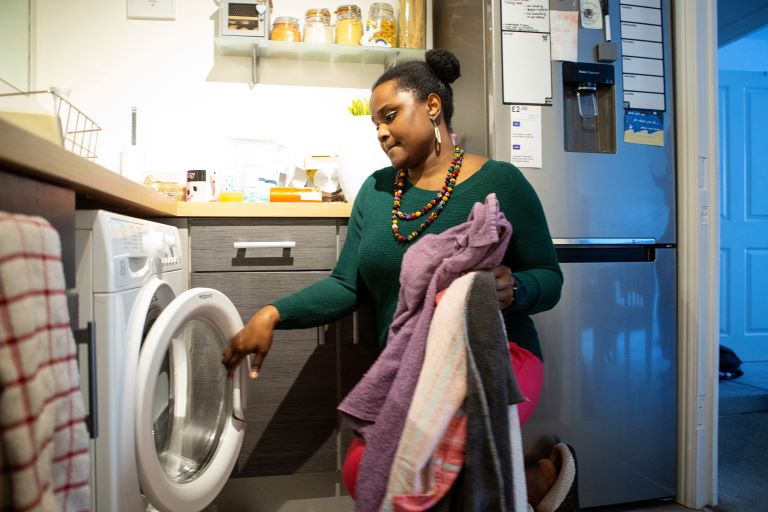Student Mental Health – Where to get support while studying
13/09/2023

There are many different individuals and organisations who can offer you mental health support as a student. If possible, put this support in place when things are going well. It could make it easier to ask for help if you start to find things more difficult. Try thinking about who you feel comfortable talking to. You might want support from:
- Your place of study
- Outside of your place of study
- Friends and family
- Online mental health support
Whether you have an existing mental health problem or are starting to find things difficult to manage, considering your options for support can be helpful.
Support can vary, both in quality and how easy it is to access. So it can be useful to consider a variety of places and people that you can seek support from.
Support from your place of study
The college or university disability service
Your college or university may have a disability support service. The service can support you to manage any health problem that affects your studies. This includes both physical and mental health problems.
You can arrange a meeting with the disability service to discuss any challenges that you might have with your studies. And look at what support the service can provide. The service may be able to arrange:
- Mentoring – this might be with another student or a disability specialist
- Study skills training – such as courses in coping with stress or planning work
- Specific arrangements – for your assessments or exams
You may also be eligible for financial support through the Disabled Students’ Allowance.
The University Mental Health Advisers Network (UMHAN) is a good source of information about the support you could be entitled to.
Your college or university counselling service
Most colleges and universities have a free counselling service for students. The service can can offer you advice about your circumstances. This is independent of your academic tutors or your GP.
You can usually self-refer to a university or college counselling service. You don’t need to see your GP first or have a medical diagnosis.
Student led support
Your place of study may have a Students’ Union with a welfare officer or a Student Advice Service. They can offer free and independent advice or support. They can also refer you to external support.
Students’ Unions and the staff they employ are independent of the university or college. But they are usually based in the same buildings.
An academic contact
Your university or college should assign you an academic supervisor or tutor. They should give you support and advice about your studies. If your tutor knows about your mental health, they may be able to better support you and help you to get further academic support.
- Some tutors will be proactive about meeting their students. With others, you may have to contact them to arrange a meeting. Remember, they are there to support you, so don’t feel shy about taking the first step.
- Talking to your tutor early can help ensure that the right support is in place. So if things do get tricky, they’ll understand how they can support you.
- Your department may have a welfare or disability liaison. You could talk to them about your mental health, if you don’t feel comfortable talking to your tutor.
Each place of study will offer slightly different support. It’s always worth taking a look at your university or college’s website to see what is available to you.
Support outside your place of study
Your GP
Your GP can support you by:
- Referring you to local services
- Prescribing medication where necessary
- Helping you get treatment for your mental health
If you don’t have a diagnosis, but are concerned about your mental health, you can always speak to your GP about this. See Mind’s pages on seeking help for a mental health problem for more information on support from your GP.
You can also find more advice from the NHS on student health.
If you are an international student, you might not be familiar with the National Health Service (NHS) and how to get support. The UK Council for International Student Affairs (UKCISA) has some useful information on looking after yourself and how to get medical treatment if you need it.
Organisations and charities
There are some charities and organisations who specifically work with students. They could offer you support:
- Student Minds offers support for students and runs peer support groups across the country.
- Students against depression has information and advice for students experiencing depression.
- Nightline offers confidential telephone support overnight at universities across the country.
- Young Minds has information and support for young people experiencing mental health problems.
- Propel gives support, help and advice to young care leavers around moving into higher education.
Voluntary organisations and charities also give support to students.
- Citizens Advice – gives support on practical issues like housing, debt and benefits.
- The Samaritans – available 24 hours a day by telephone or email, to talk about anything that’s upsetting you.
- The Mix – supports anyone aged under 25 with issues including mental health, housing and going through a break up. It has a free, confidential helpline, a counselling service, and an online community.
Peer support
When you experience a mental health problem it can feel as if no one understands. Peer support brings together people who’ve had similar experiences to support each other. Many students find that meeting others with experience of mental health difficulties helps them feel less alone. And it makes it easier to talk about their own mental health.
- Join one of our peer support groups
- Your place of study might run peer support groups on campus, in your halls or on your course.
- You can usually self-refer to peer support programmes. You don’t need to see a GP first or have a diagnosis.
- You can also get online peer support through communities like Side by Side. Our pages on looking after your mental health online have information which may help if you get support online.
Check out your college or university’s counselling service, Students’ Union or Student Minds peer support programmes for more information about peer support near you.
Friends or family back home
If you’ve moved away from home, it can be difficult to keep in contact with friends and family, particularly if you’re an international student. Even if you haven’t moved, you may not spend as much time with your family and friends as you used to. You may have less time than before or be making new friends. Or you may want to be more independent while studying.
However it can be useful to get support from old friends and your family. Particularly if you’re feeling low or experiencing poor mental health.
To keep in contact while also having an independent or new lifestyle, try:
- Using email or social media – even quick forms of contact, like forwarding jokes, allow you to keep in touch
- Writing a letter or card – these can feel more personal and be nice to receive
- Taking time to talk – set aside a time each week to chat to a close friend or family
- Inviting friends to stay so you can show them around – they may then do the same for you
- Keeping people up to date with what you’re doing – so they feel they’re still part of your life – you don’t have to tell them everything, just let them know what’s going on
Online mental health support
Being online can be beneficial to your mental health, but it also has some challenges. Visit our pages on looking after your mental health online for more information. Plus tips on getting the balance right between your online and offline life.
Source: Mind
For more information see Mind’s student mental health hub
Find out more about student life and mental health.
